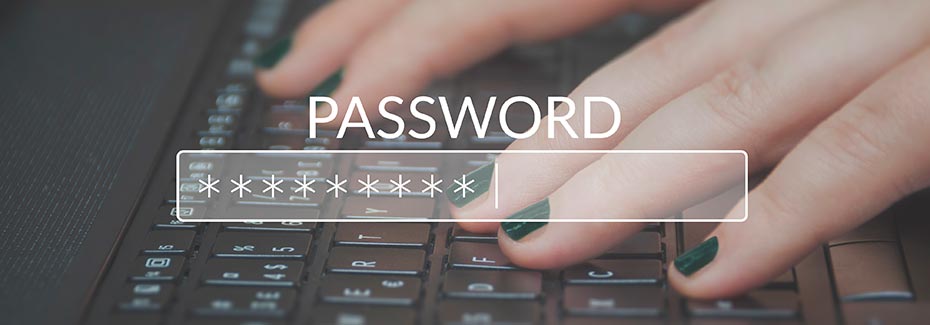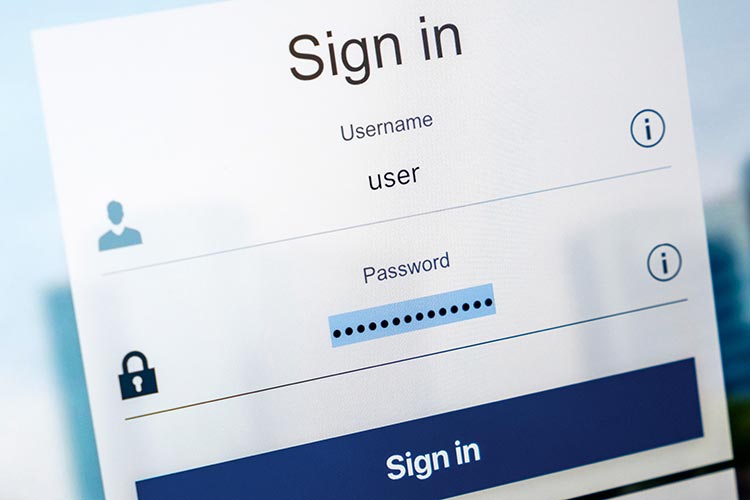Why Using The Same Password Is Bad

Some of us more than others are guilty of using the same password for different websites. A new study by Google confirmed internet users need to stop using the same password for multiple websites unless they’re keen on having their data hijacked, their identity stolen, or worse. Utilizing the same password for different websites leaves you vulnerable to hackers gaining access to sensitive accounts. We’ll explain why having different passwords for different websites is a cybersecurity benefit and a tool to help manage many passwords. Spoiler alert – you’ll need to remember one master password.
Passwords are not the most efficient cybersecurity practice. Even though we’ve all had passwords since the genesis of the internet – passwords were ways to curtail access to sensitive data. Fast forward to 2019 and notice how new methods of authentication are beginning to replace passwords. For instance, the newest iPhone comes equipped with facial recognition software to unlock the phone. Another example is bio-metric security. Laptops and accessing secret lairs with a fingerprint is becoming used for higher level security hardware and buildings. Although this technology is available, it’s not practical for the average user. Therefore we use passwords to access certain information on the internet. Let’s discuss why using the same password is harmful to your digital identity.
Same Passwords Increase Security Risks
Nobody is perfect. We’ve all been guilty of recycling passwords on numerous websites. To illustrate an example, we’ll tell a fictional story of how using the same password is detrimental to you and a business.
John is a business owner and sells cardboard boxes to consumers and packaging companies. Similar to all business owners, John is a busy person who wears multiple hats. He doesn’t have time for granular details, and focuses on generating revenue for the business. He interacts with a lot of different websites; banking, accounting, and so forth. He’s made a habit of using similar or the exact same passwords for all his logins. One day, while reviewing his bank account statement, John notices he’s missing a lot of money. He also notices strange transfers away from the bank account to an unidentifiable bank account. Even worse, his accounting software statement is full of debits he’s unaware of. John’s accounts have been hacked.
All of the business’ finances are compromised. In addition, John realizes he no longer has access to his finance software after he attempts to log in. Locked out and nothing he can do at the moment. As a result of using the same password all of John’s accounts became susceptible to hackers. A situation similar to John is plausible and happens often. Once a hacker gains access to one account, chances are high that they’ll use the same password on other accounts.
avoid same Passwords at all cost
The story about John is a simplified version of a person being negligent with company passwords. What can a small business do to avoid having their data stolen? For starters, you should come up with more complex passwords to help increase company security. For example, a password does not have to be a collection of random characters. Use a combination of a word plus numbers plus another word followed by a special character. Here’s an example: Western4909Mummy! You’ll notice that the words and numbers do not have a correlation with one another. That’s a good thing! The point is to include random words, numbers, and special characters. The more characters the password incorporates the smaller probability that the password will become compromised.
A similar password for any business software, such as email, banking, sensitive data, and so forth is asking for trouble. Use complexity in passwords. Heck, why not use a song lyric or a non-English word with special characters? Incorporating tough to obtain passwords is more important then ever before. With most business, now more then ever, performed online requires thought into creating a password.
Password Management
We live a in world were we interact with multiple business productivity tools. With more tools, comes more passwords. We discussed the importance of not using the same password and what kind of passwords you can create. The last part of the blog post will discuss password management. We provided a password management tool in a previous blog post and will touch on it here. There are many password management tools, but one of the most popular is LastPass. This particular software provides peace of mind.
The gist of how LastPass works is simple. LastPass is a software that stores many passwords for different websites and is protected by one master password.
All you have to do is remember the one master password. With that said, keeping your passwords in one area can be scary. For instance, if someone were to hack your master password the individual would have access to all of your passwords. The message to harp is clear: the more complex the password, the harder it will be to guess.
LastPass is a tool many businesses use. Every associate of the business can incorporate LastPass through a web browser or download the software. In addition, one neat feature about LastPass is the ability to fill in your password without you having to type in said password. The software includes numerous features with too many to list on this blog post.
Summary
The moral of the story is to never use the same password on any website. No matter what. We hope the information provided is valuable and actionable. The time to stop using similar passwords is now. Let us know what you thought of this blog post in the comments section. We always appreciate feedback and open to questions.

